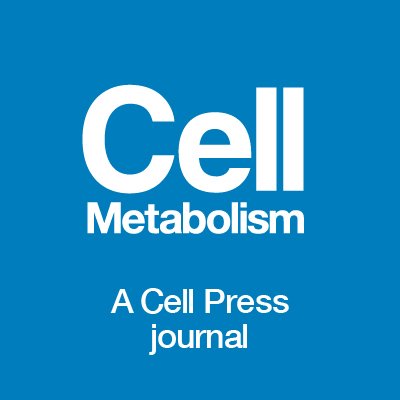
Shingo Kajimura Lab
@KajimuraLab
Followers
2K
Following
332
Media
6
Statuses
218
Lab at Beth Israel Deaconess Medical Center, Harvard Medical School, HHMI studying bioenergetics. #Metabolism #Mitochondria #Adipocytes @HarvardMed @HHMINEWS
Boston, MA, USA
Joined July 2021
RT @NatMetabolism: #NatMetabPicks | In @Cell_Metabolism led by @KajimuraLab et al. (@HarvardMed, @HHMINEWS). C4orf3 is an ER-anchored prote….
0
8
0
RT @SuneilKoliwad: Congrats to Dr. Shingo Kajimura, recipient of the Outstanding Scientific Achievement Award #ADA2025 whose talk, “An unex….
0
3
0
RT @RobertoZoncu: Beautiful work on PCSK9 as driver of metastatic organ targeting in pancreatic cancer by @GillesRademaker and @rushika_per….
0
4
0
RT @Gerta_Hoxhaj: Thrilled to share our new @NatureCellBio paper, led by our amazing student @DohunKim96: Mitochondrial NADPH powers mitoch….
0
59
0
RT @Cell_Metabolism: New! Online now: Identification of a molecular resistor that controls UCP1-independent Ca2+ cycling thermogenesis in….
0
16
0
RT @brkthroughprize: GLP-1 agonists have transformed life for many people with type 2 diabetes and obesity. The 2025 Breakthrough Prize hon….
0
96
0
RT @RobertoZoncu: Excited to share ‘Leucine Aminopeptidase LyLAP enables lysosomal degradation of membrane proteins’, by phenomenal superst….
0
71
0
RT @JuleenRZierath: The time is now: accounting for time-of-day effects to improve reproducibility and translation of metabolism research |….
0
18
0
RT @SuneilKoliwad: From “preprint” to “in press”! . Congrats @MValdearcos @RachelLippert and the rest of our outstanding team. @AtUcsf @UCS….
0
8
0
Thank you! This is an incredible honor. I would like to thank my mentors, colleagues, and all the fellows who have worked with me over the years - Please come join us at ADA in Chicago!.
Yay Shingo! • Shingo Kajimura, PhD is the recipient of the 2025 Outstanding Scientific Achievement.Award of the ADA, which recognizes research in diabetes that demonstrates particular independence of.thought and originality. @KajimuraLab.
12
1
68
RT @Cell_Metabolism: New! Online now: Leptin enhances the intracellular thyroid hormone activation in skeletal muscle to boost energy bala….
0
33
0
RT @realTonyHui: Happy to share the final version of this work where we incorporated isotope labeled CO2 data into mass spec-based flux ana….
0
27
0
RT @LabSpiegelman: Ergothioneine is an atypical amino acid to which many health benefits in humans have been ascribed. Here we determine th….
0
17
0
RT @RogerJDavis1: Rhodoquinone carries electrons in the mammalian electron transport chain: Cell
0
18
0





